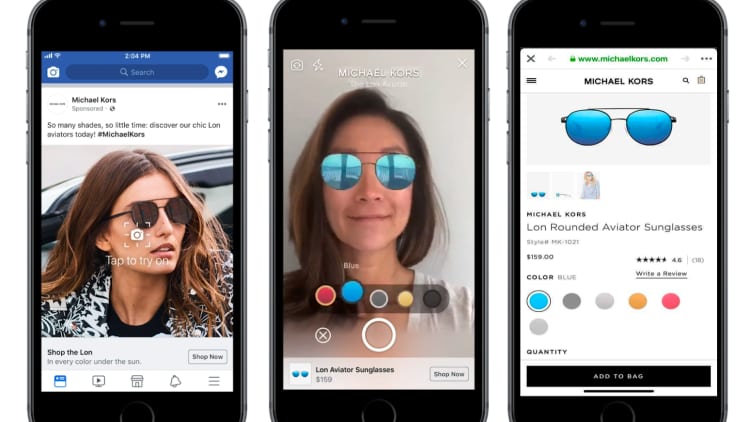Facebook's ad chief reportedly walked back comments she made at a conference that changing political ad targeting was "not on the table," saying she shouldn't have taken such a definitive stance.
Carolyn Everson, Facebook's vice president of global marketing solutions, told Axios reporter Sara Fischer she should not have been so firm in her remarks on stage Monday at the Code Media conference, and that nothing is necessarily off the table. Fischer shared the new remarks in a post on Twitter.
At the conference, Everson said: "We are not talking about changing the targeting, I know that was reported. ... That is not on the table."
Facebook did not immediately respond to a request for comment clarifying its stance on political ad targeting.
The highly focused targeting of political ads has become a central point of scrutiny as tech giants grapple with how to manage their presence on their platforms while facing a dearth of legislative guidance. Faced with the threat of ads spreading misinformation to such small groups of users that they are hard to track down and rebut, Twitter has opted to get rid of political ads altogether (but allowed some "cause-based" ads to remain), while Facebook has taken a more hands-off approach.
But there have been signals that Facebook could still consider further changes to its policy. Facebook policy chief Nick Clegg confirmed to Politico earlier this month that the company was thinking about restricting politicians' ability to micro-target ads. Everson's initial remarks on stage Monday had made it seem that the conversation had come.
Academic researchers who study political ads say banning them from social media will likely introduce new problems, like favoring incumbents, but micro-targeting is often at the root of the most extreme ads. When politicians know they can target only the users most likely to be receptive to their messages, they are more likely to stray from the mainstream, experts say.
"It incentivizes the most extremist content," Daniel Kreiss, an associate political communications professor at University of North Carolina at Chapel Hill, previously told CNBC. "It incentivizes things like misinformation and disinformation because campaigns know that they can control their message."
WATCH: How Facebook makes money by targeting ads directly to you



